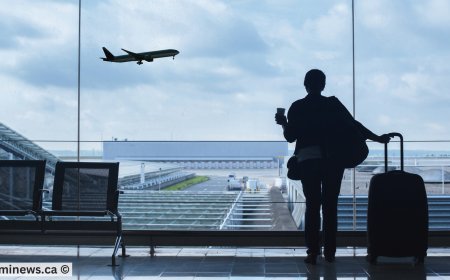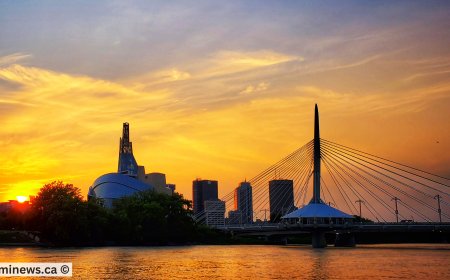Fire chiefs and senior firefighting officers Opportunities in Canada: A Comprehensive Immigration, Salary, and Duties Guide
Welcome to the pathway to Canada immigration for skilled professionals and trade workers. This guide is specifically tailored for Fire chiefs and senior firefighting officers looking to work and settle in Canada, offering a deep dive into the essential aspects of immigration and employment in this field.
Introduction
In recent years, Canada has emerged as a popular destination for individuals looking to pursue a career in firefighting, particularly for senior roles such as Fire chiefs and senior firefighting officers. In this article, we will delve into the profile of Fire chiefs and senior firefighting officers, including their main job duties, education and licence requirements, skills needed for success in the field, and median salaries. Furthermore, we will discuss the potential visa options available for individuals looking to immigrate to Canada to pursue a career as a Fire chief or senior firefighting officer. Whether you are a seasoned professional in the field or a newcomer considering a career in firefighting in Canada, this article will provide valuable insights and information to help you navigate your career path.
What is the Profile Description of a Fire chiefs and senior firefighting officers as per the Canadian National Occupation Classification (NOC) Standards?
Fire chiefs and senior firefighting officers are responsible for overseeing and coordinating all aspects of firefighting operations and fire prevention efforts within fire departments. Their duties include planning and implementing strategies to combat fires, ensuring the safety of personnel and the public, and managing resources effectively. They work closely with municipal and federal governments, as well as industrial establishments with firefighting services, to ensure a coordinated and efficient response to emergencies. Overall, their role is crucial in ensuring the safety and well-being of communities.
What are the Main Job Duties of a Fire chiefs and senior firefighting officers in Canada?
- Develop, implement and evaluate policies, procedures, and firefighting strategies for the operation of a fire department
- Plan, direct, and coordinate activities at the scene of a fire, evaluating damage and determining causes
- Oversee security and fire prevention campaigns, representing the department in communications and media
- Direct training of personnel in firefighting methods and coordinate budget and resources
- Conduct investigations into potential causes of fires and develop damage estimates
What are the Education, Certifications, and Licensing Requirements to Work as Fire chiefs and senior firefighting officers in Canada?
Fire chiefs and senior firefighting officers must have a high school diploma or equivalent. Additionally, they must have completed a college program in fire protection technology, fire science, or a related field. They must also complete a provincial or municipal firefighters training course. In most cases, individuals must have a minimum of ten years of experience as a firefighter before becoming eligible for a senior officer position.
What Essential Skills are Required for Fire chiefs and senior firefighting officers to succeed in Canada?
Success as a fire chief or senior firefighting officer requires a diverse skill set, including the ability to plan, direct, and co-ordinate firefighting strategies, develop and implement procedures and policies for firefighting operations, oversee the implementation of fire prevention campaigns, analyse data and information to prepare reports, evaluate the type and extent of fire damage, direct activities at the scene of a fire, determine damage estimates and investigate potential fire causes, and effectively represent the fire department in communications with government, media, and the public. Additionally, strong leadership, communication, decision-making, problem-solving, and critical thinking skills are essential in this profession.
What is the Median Age and Retirement Age for Fire chiefs and senior firefighting officers in Canada?
The median age of skilled professionals working as Fire Chiefs and senior firefighting officers is 50 years old, with the average retirement age being 61. This suggests that individuals in these positions tend to have a long and fulfilling career in the firefighting industry before transitioning into retirement. With years of experience and expertise behind them, these professionals play a crucial role in leading and managing firefighting operations, ensuring the safety of both their team and the community they serve. Their dedication and commitment to their work is evident in the significant amount of time they spend in the field before entering into retirement.
How many job openings exist for Other Fire chiefs and senior firefighting officers in Canada, and what's their provincial distribution?
In Canada, there are a total of 2 job openings for the position of Fire Chiefs and Senior Firefighting Officers. Both of these job openings are located in the province of British Columbia. This province has the maximum number of job openings in this field. Other provinces and territories in Canada do not have any current job openings for Fire Chiefs and Senior Firefighting Officers. It is clear that there is a high demand for individuals with expertise in firefighting and leadership in British Columbia. Applicants looking for opportunities in this field may want to focus their job search in this province.
What is the hourly wage or salary of Fire chiefs and senior firefighting officers in different Provinces of Canada?
In Canada, the wages for Fire Chiefs and Senior Firefighting Officers vary significantly by province. In British Columbia, the wages range from a low of $34.50 to a median of $57.87 and a high of $79.55. Alberta follows closely behind with wages ranging from $27.81 to $57.70 at the median and $74.95 at the high end. Ontario offers slightly higher wages, ranging from $29.94 at the low end to $54.56 at the median and $79.04 at the high end. Quebec has the lowest wages overall, with a range from $27.29 at the low end to $45.92 at the median and $68.68 at the high end. It is clear that there is a significant variation in wages for Fire Chiefs and Senior Firefighting Officers across provinces in Canada, with British Columbia and Ontario offering the highest wages on average.
What are the various visa options available for Fire chiefs and senior firefighting officers migrating to Canada?
Fire chiefs and senior firefighting officers have a variety of visa options available to them to migrate to Canada. One of the most popular programs is the Express Entry Visa Category, which is a points-based system that assesses candidates based on factors such as age, education, work experience, and language proficiency. Another option is the Provincial Nominee Programs, which allow provinces and territories to nominate individuals with specific skills and experience to meet their unique labor market needs. Additionally, there are employer-sponsored work visas that allow Fire chiefs and senior firefighting officers to come to Canada to work for a specific employer. These individuals can apply directly under these programs, as well as explore other visa options that may be open to their profile. To learn more about the visa options available for Fire chiefs and senior firefighting officers, book an appointment with our professionals for a detailed discussion.
Have Questions or Need Assistance?
If you have any queries or require assistance with your immigration plans, we're here to help. Our experienced immigration consultants are ready to provide personalized guidance tailored to your specific needs.
Don't hesitate to reach out and schedule an appointment today. Whether you're seeking clarification on immigration processes, exploring visa options, or need support with documentation, we're dedicated to assisting you every step of the way.
Book an appointment with our team to discuss your immigration goals and receive expert guidance for your journey to Canada.
What's Your Reaction?
 Like
0
Like
0
 Dislike
0
Dislike
0
 Love
0
Love
0
 Funny
0
Funny
0
 Angry
0
Angry
0
 Sad
0
Sad
0
 Wow
0
Wow
0









































































